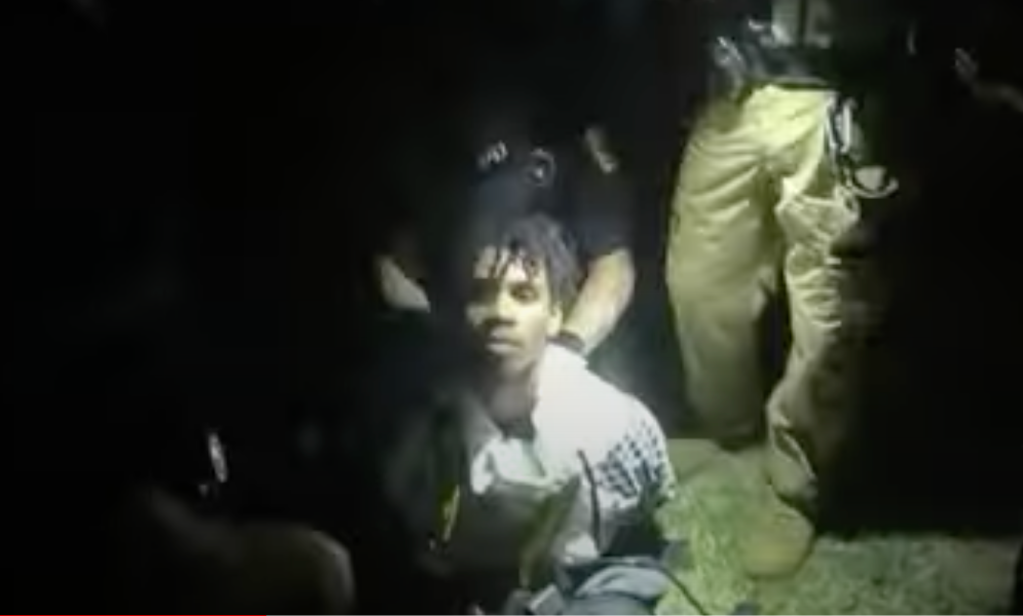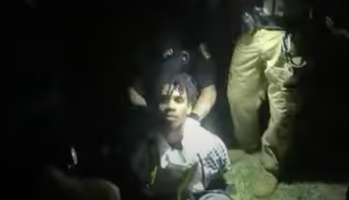
Source: youtube / Youtube
It’s been shown time and time again that cops should not be called to the scene when Black people are experiencing a mental health crisis. Let’s just be real: To most police officers, a Black person acting up is a Black person acting up, and, regardless of the circumstances, it requires the use of force. And that use of force is often applied with little to no regard for Black life.
Last year in Mission, Kansas, 17-year-old Cedric “C.J.” Lofton was killed a day before his 18th birthday. He was suffering from a mental health crisis. He was promised by police officers that he would be taken from his home to a mental health facility but he was sure he’d be taken to jail. He was also sure he’d be killed. Despite his delirium, he was essentially right on both counts.
On Friday, the Associated Press published a lengthy and well-detailed account of C.J.’s life and his final moments leading up to his death on September 26, 2021.
From AP:
“Y’all here to protect me,” the youth asked the officers, beseechingly. “Right?”
The 17-year-old’s foster father, unable to deal with a teen who seemed to be in the throes of schizophrenia, had called Wichita police. When they arrived, Cedric “C.J.” Lofton refused to leave the porch and go with them; he was obstinate but afraid, meek but frantic.
After an hourlong stalemate, the police lost patience. It was time to take him away — by force, if necessary.
C.J had somewhat of a difficult life. Both his parents had brushes with the law and much of the teen’s life was spent moving back and forth between living with relatives and in the foster care system. He had his own brushes with law enforcement and there were times when he had reported behavioral problems, but he also had educators and foster parents who spoke highly of him. By all accounts, he was a kindhearted but troubled young man.
“Some of those kids, like when they’re kind of like that, you know, like a little ornery, but really just so full of life, they just kind of grab your heart,” said Traci Kallhoff, a zoology teacher at Wichita Southeast High School, which C.J. attended.
Eventually, C.J. began telling his friends and loved ones that he was hearing things. While he was never diagnosed with schizophrenia, relatives said there was a family history of the mental disorder.
On September 22 of last year, C.J. reportedly walked away from his school and his foster father called the police reporting him as a runaway.
More from AP:
“He has been telling people not to look in the mirror because it takes your soul,” he told a dispatcher, adding that C.J. thought security guards were secret agents that were spying on him and that he doesn’t want anyone to come into his room because he says the house is bugged.
Hardyway said he called her around 2 the next morning. She could tell he was outside, but he refused to tell her where.
“He was just telling me like he loved me and stuff and then he just hung up because his phone was about to die,” she recalled. They never spoke again.
When C.J. returned home around 11:30 a.m. that Friday morning, the foster father immediately took him to the county’s mental health provider for an evaluation. But they never made it inside.
“He started freaking out and then ran off on me again,” the foster father told police.
A couple of days later, C.J. came home at about 1 a.m. and was told by his foster father to stay on the porch because he had called the police out of fear for the teen’s safety. Actually, he first called the community operates a program “in which a mental health professional, a law enforcement officer and a paramedic respond to an emergent mental health crisis,” according to AP. But that program only operates from noon to 10 p.m., Tuesdays through Fridays. (If only mental health crises only happened during business hours.)
So, the police showed up and, for about an hour, tried to convince C.J. to come with them to a mental health facility.
“The hospital,” C.J. said to officers. “I thought you was talking about jail.”
“Not jail, just the hospital, one officer responded. I promise you we would go there.”
Eventually, a sergeant made the decision to take C.J. into custody by force. And—wouldn’t you know it—the teen was taken, not to a hospital, but to a juvenile intake where he was fingerprinted and thrown in a holding cell.
Sedgwick County Commissioner Jim Howell admitted that C.J. “went from crisis to death because we got involved.”
“We all need to own what we did right and what we did wrong,” Howell continued. “And the reality is there’s things that happened that were wrong.”
Yeah, that’s putting things mildly. The “wrong” began the moment police officers were called to the scene.
SEE ALSO:
Shopping While Black: East Lansing Police Release Video Of DeAnthony VanAtten Parking Lot Shooting
The Life And Death Of Cedric ‘C.J.’ Lofton was originally published on newsone.com

















